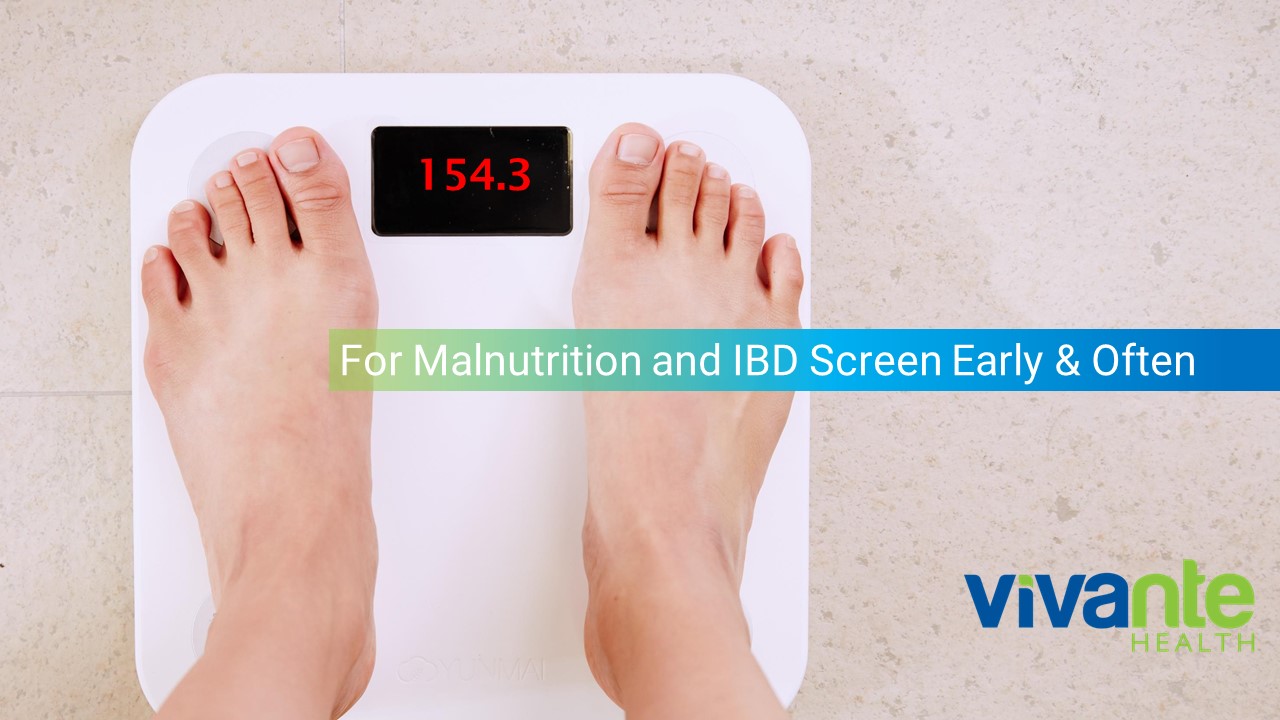Screen early and screen often. That’s the message from a doctor at Cedars-Sinai hospital.
Studies estimate up to 70% of all inflammatory bowel disease (IBD) patients have some level of malnutrition. In fact, 26% of IBD patients are likely to be deficient in Vitamin B6, and up to 100% are likely to be low in Vitamin D. These nutritional deficiencies are nothing to ignore. They can have long-term negative consequences, for example, increased disease activity, greater risk of disease progression, and a higher rate of surgical complications.
Screening Questions
If you have IBD, how do you know if you’re at risk for malnutrition? According to Dr. Kelly Issokon who spoke at a 2019 conference for Crohn’s and colitis, these two screening questions are critical:
1) Have you recently lost any weight, even a small amount, without trying?
2) Are you eating less because of a poor appetite?
If you answer “yes” to either of these, your body might need a nutritional boost. Talk to your doctor about it. For some people with IBD, oral nutrition supplements can do the trick.
Oral Nutritional Supplements
Oral nutritional supplements are not a meal replacement. Rather, they’re taken alongside meals to help you get the proteins, vitamins, and minerals your body might be missing. Oral nutritional supplements are commonly recommended to boost iron, vitamin B12, zinc, and fat-soluble vitamins like A, D, E, and K. As mentioned above, though, it’s best to ask your doctor or a nutrition expert who’s very familiar with your condition for specific recommendations.
One Final Note About Good Nutrition
For folks with IBD, especially those who undergo multiple hospitalizations, it’s critically important to keep malnutrition at bay. Malnutrition is a predictor of bad outcomes, meaning it can delay healing, limit the effectiveness of medications, and increase the risk of infection and even death after surgery.
Screen yourself for malnutrition with the questions above. If either answer is yes, talk to your doctor.
References:







